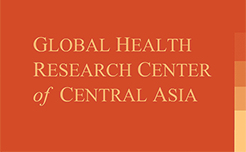The study will focus on 1) integrating HIV care with harm reduction treatments and 2) testing real-world effectiveness. As HIV incidence in many countries has fallen over the past decade, it has continued to increase in Russia, Eastern Europe, and Central Asia, fueled mainly by injection drug use. The Social Intervention Group (SIG) of the Columbia School of Social Work has been actively engaged for more than ten years in the fight against this rapidly expanding epidemic in the Central Asian Republic of Kazakhstan, securing more than $9 million in funding to support a series of projects assisting researchers on the ground with testing evidence-based treatment methods. And now, with the help of a $4.8 million grant from the National Institute of Drug Abuse (NIDA) division of the National Institutes of Health (NIH), the SIG research team, led by Willma and Albert Musher Professor Nabila El-Bassel, will be taking two important next steps. The first will be to integrate evidence-based HIV testing, treatment and care programs into harm reduction programs across Kazakhstan.
Currently, the majority of Kazakhstanis who inject drugs are more likely to seek out a harm reduction program, where a health care worker provides the drug user with clean syringes and needles, than to seek treatment for HIV. Only 28 percent of the estimated 123,574 people who inject drugs were tested for HIV in 2012, the last year for which statistics are available. Of those who turned out to be HIV-positive, fewer than 10 percent are currently engaged in HIV care and only 7 percent receive Antiretroviral Therapy.
This study aims to close the critical gaps in HIV care for people who inject drugs by implementing evidence-based intervention strategies that widen access to HIV testing and counseling and by improving the linkage to HIV care in 24 harm reduction programs across Kazakhstan. The second step will be to examine the effectiveness of implementing evidence-based HIV testing and treatment programs as part of harm-reduction programs.
The study ultimately aims to answer important questions for future wide-scale implementation, such as: Are these intervention strategies cost effective? Are there structural or organizational factors that get in the way? Can the model be scaled up for use in settings across Central Asia? “Scaling up integrated, cost-effective HIV services is urgently needed,” said Professor El-Bassel. “Our study uses a state-of-the art implementation research design and will have important public health implications for improving HIV service delivery in injection-driven epidemic countries, especially in Central Asia.”
The study will be led by Dr. Nabila El-Bassel and Dr. Louisa Gilbert along with a team of co-Investigators that include:
- Dr. Elwin Wu, Dr. Mingway Chang, and Tim Hunt from the School of Social Work;
- Dr. Assel Terlikbayeva and Sholpan Primbetova, two CSSW alumni who run SIG’s office in Almaty, known as the Global Health Research Center; and
- Stephen Smith Professor Lisa Metsch and Professor Karolynn Siegel from the Department of Sociomedical Sciences at Columbia University’s Mailman School of Public Health.
“This study addresses the most pressing issues in HIV prevention and implementation science,” said Professor Metsch. “It is designed to increase HIV testing, and linkages to care among people who need it in Central Asia.” She added that this is a wonderful collaboration between two schools, Social Work and Public Health. “Coming up with solid, evidence-based solutions emphatically does require multidisciplinary – See more at: http://socialwork.columbia.edu/news-events/social-intervention-group-receives-48-million-nih-grant-take-next-steps-fight-against-hiv-kazakhstan#sthash.YvH6bg33.dpuf



Connect with us